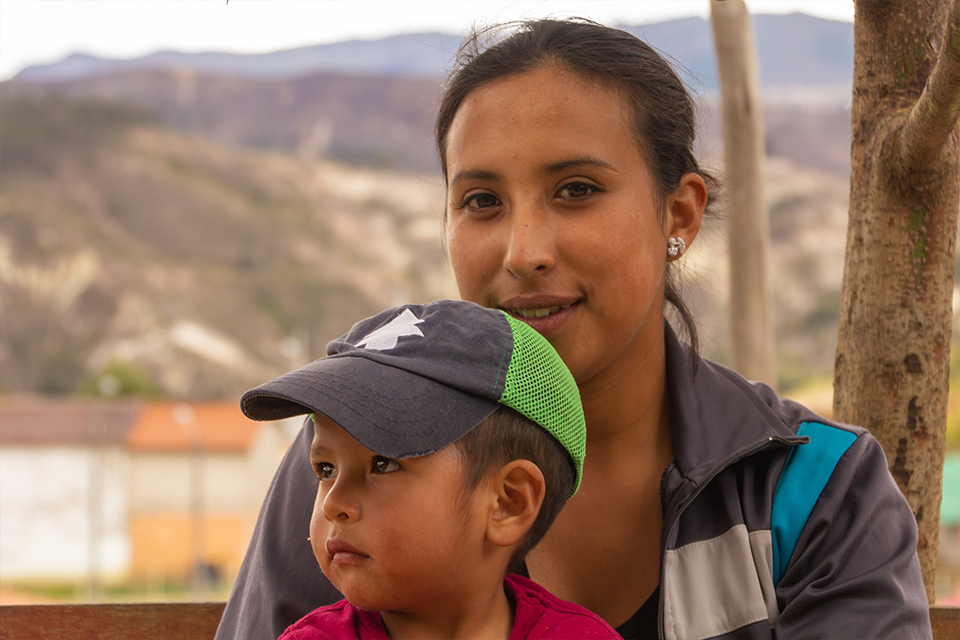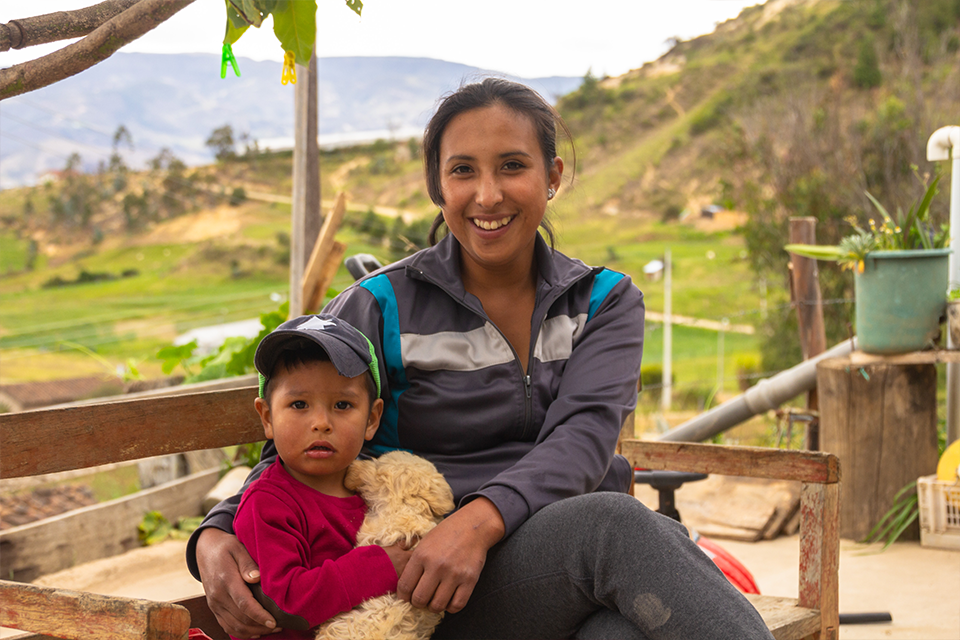We have the right to make time for ourselves
By: Flor Shinin RomeroDate:
I am 24 years old, I am from Morasloma, I spent all my childhood here, with my two sisters and one brother. I am a single mother. I live with my son; I don't care what people say about me. At the beginning it was difficult to get by with him alone, but not now, because a hug from him, a kiss from him rewards the suffering I went through.
I finished high school, I also went to beauty school, and I thought about going to university to study psychology. I studied by my own means, I worked during the week, weeding, harvesting corn and so I finished school.
I liked the UN Women project because it gave us a different perspective regarding our value as women, encouraging us to make time for ourselves.

They taught us about our rights, about personal care, that it’s OK to dedicate a little time to myself, not only to the family because I also have the right to take care of myself and to de-stress, to not only dedicate ourselves to the home.
Everything they told us was extremely useful. We learned how to knit scarves to have motor skills in our fingers, so that when we have a little free time left, we can dedicate ourselves to that and have something to rest our minds from the problems.
We learned how to avoid using chemicals and opt for organic fertilizers in the garden. They also talked to us about food sovereignty. If we grow our own food, we know what we are eating, what we are taking home and what we are giving to our children, healthy food, free of chemicals. We learned how to do soil tests, and they provided us with mineral broths and showed us how to apply them, I applied one of them to some cabbages that had some bugs and it worked!
We learned about natural, organic options, so that we no longer use chemicals that cost us money. With that we wouldn't spend anything because we already have everything we need. When the project started, I had a greenhouse with nothing, empty, and there, talking with them, I planted some peppers without fertilizer, without anything, I just put them in the soil and that was it. They sprouted, but I saw that they were small and yellow, so I put a mineral broth made up of ash and sulfur on them, and with that they turned green, they came to life. Then we made the bokashi, I applied it and now the plants are so big, I am already selling peppers in Cuenca.
With the alders that UN Women gave us, I reforested a hectare together with a group I have been working with for several years, called Comuna del Cerro. We were advised to avoid burning the thatch because the thatch and the moss store a lot of moisture and if we burn or cut it down then that moisture is no longer stored and the water dries up.
I dream of seeing my community turn green again, with more trees, more animals, more vegetation. I would like to play with my son for longer, to enjoy his childhood, and for him to grow up in a peaceful place, without things that could harm him. I would like my son to stay here, and not feel the need to go to the city to get ahead, because we have many possibilities here that would allow us to live well. I would like my son to study veterinary medicine, a career with which he can thrive right here.

--
This editorial piece is an excerpt from the publication "Agua, mujeres, páramo: poner la vida en el centro de la vida", an editorial product that systematizes testimonials from the beneficiaries of the project "Sustainability of the páramo from a gender perspective", implemented with the Autonomous Decentralized Government of the Province of Azuay, Ecuador and financed by the City of Madrid.
The opinions contained in this blog are the responsibility of the author and do not reflect an official position of UN Women or any other agency of the United Nations System.